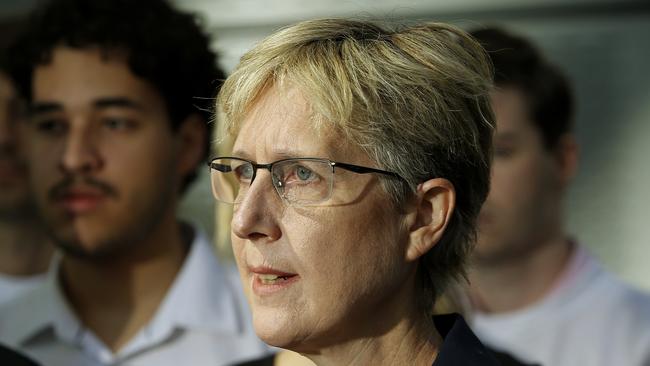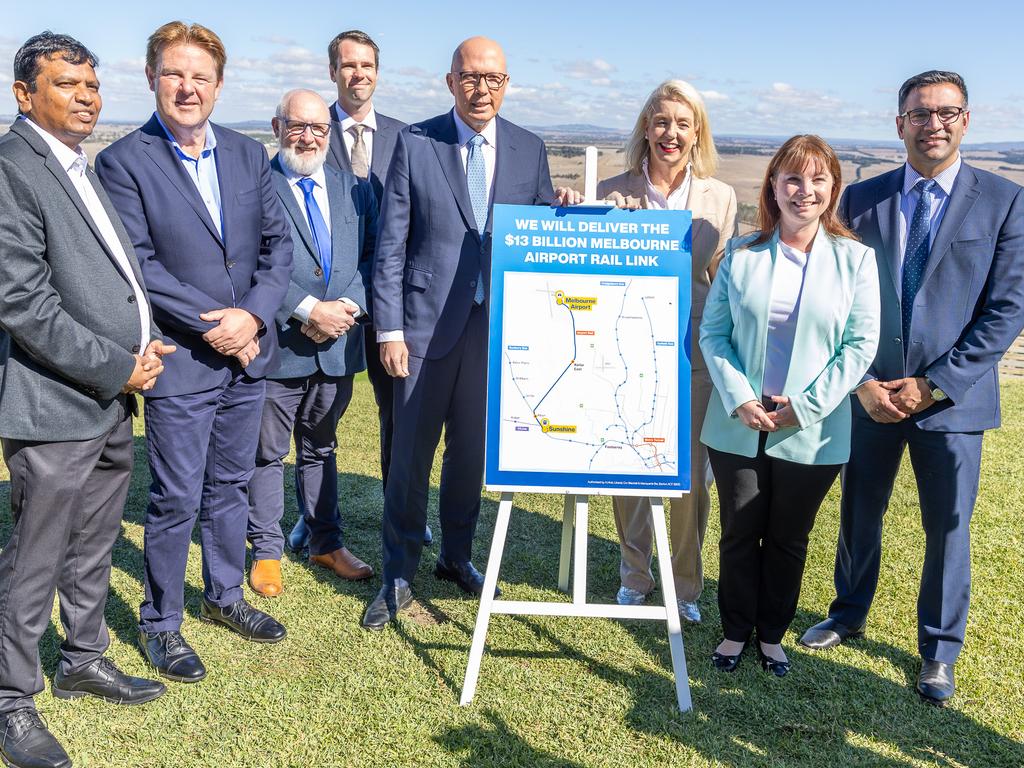Election 2025: Unions and bosses clash as ACTU seeks $41 a week increase for low-paid
Unions will pursue a 4.5 per cent pay rise for 2.9 million low-paid workers, clashing with employer groups that warned an increase in minimum and award wages well above the inflation rate would threaten the viability of many businesses.

Unions will pursue a 4.5 per cent pay rise for 2.9 million low-paid workers, clashing with employer groups that warned an increase in minimum and award wages well above the inflation rate would threaten the viability of many businesses.
Declaring that lower-paid workers had borne the brunt of the cost-of-living crisis, ACTU secretary Sally McManus said the peak union body’s “affordable and responsible” claim for a $41.22-a-week minimum wage rise would lift the annual full-time rate by $2143 to $49,770.
“We must remember that our minimum wage for a full-time adult worker is only $47,626 a year,” Ms McManus said.
“It is not enough and needs to increase. We are not America, and no one should be left without a liveable wage after working full-time hours. A 4.5 per cent rise for 2.6 million award-reliant workers is what they need to get ahead of inflation caused by global supply problems and price gouging by the likes of supermarkets and insurance companies.”
Employer groups will strongly oppose the claim, with the Australian Chamber of Commerce and Industry pushing for a 2.5 per cent increase, equivalent to $22.90 a week, while the Australian Industry Group is calling for a 2.6 per cent rise, or $23.80 a week.
The Australian Restaurant and Cafe Association said the increase should be limited to a below-inflation 2 per cent rise, warning its members “cannot absorb wage increases without price hikes”.
The association said the consumer price index was projected to stabilise in the 2-3 per cent range next financial year following higher inflation in previous years. “A 2 per cent increase ensures that minimum wage earners experience no real wage erosion while allowing businesses some flexibility,” its submission says.
“The minimum wage increase should not be viewed as a performance increase, rather as a cost-of-living increase, thus should not outpace future inflation under any circumstance.”
Referring to Anthony Albanese’s call for an above-inflation increase, ACCI chief executive Andrew McKellar said awarding an increase in the minimum wage above inflation would risk a further rise in business insolvencies.
“Business profits have been falling for the past 18 months, while insolvencies have surged to near record levels,” Mr McKellar said. “Businesses are struggling to remain viable and a large increase in minimum and award wages, as proposed by the Prime Minister in recent media comments, would threaten the viability of many businesses.”
Peter Dutton said the Coalition supported higher wages for workers. Asked if he supported a real increase in the minimum wage, he said he did but when asked if he supported an above-inflation rise, he said the Coalition would “support the decision of the Fair Work Commission, and that’s exactly as the economy should work”.
“The Prime Minister’s in search of a fight here,” the Opposition Leader said. “That’s what he’s doing, okay? He’s trying to politicise what is the independent decision of the Fair Work Commission. We all support an increase in wages.”
Mr Albanese said he had confidence that businesses, including small businesses, could afford an economically sustainable real wage increase. “One of the things about low-paid workers is that if you pay a local paid worker more money, it doesn’t go to savings,” he said. “They do spend it because they’re doing it tough and they spend it, including in their local small business. So, it has an impact that’s positive in the economy, including for small business.”
The ACTU said its responsible claim was underpinned by a strong labour market, inflation within the Reserve Bank’s target, real GDP growth trending upwards, and 25,000 new businesses being created each month.
Ms McManus said wages moved when unions fought for them and were assisted by governments prepared to do the heavy lifting by intervening at the commission and updating workplace laws to close wage cutting loopholes.
“We welcome the announcement by Prime Minister Albanese to back in real wage increases,” the ACTU boss said.
“This means we will not be fighting alone, and this makes a huge difference.”
Australian Industry Group chief executive Innes Willox said the commission should support a moderate increase in recognition of Australia’s weak economic and productivity conditions.
“In recent years, high inflation resulted in very large increases to minimum wages,” Mr Willox said.
“But in 2025 the balance of economic factors has squarely shifted, warranting a far more moderate approach from the commission this year. A proposal higher than 2.6 per cent is completely unjustified.
“The Australian economy has continued to deteriorate, with 2024 marking the longest period of low growth in Australia since the recession of the early 1990s. Meanwhile, our productivity performance remains as dismal as ever.”
In its submission to the commission, the Allan government in Victoria called for an above-inflation wage rise for the low-paid, arguing there “should be a return to the path of real wages growth”.
“A real wage increase is required to address the recent period of high inflation, which has seen the spending power of Australian consumers decline, increasing inequality in our economy and harming social cohesion,” the state government submission says.







To join the conversation, please log in. Don't have an account? Register
Join the conversation, you are commenting as Logout